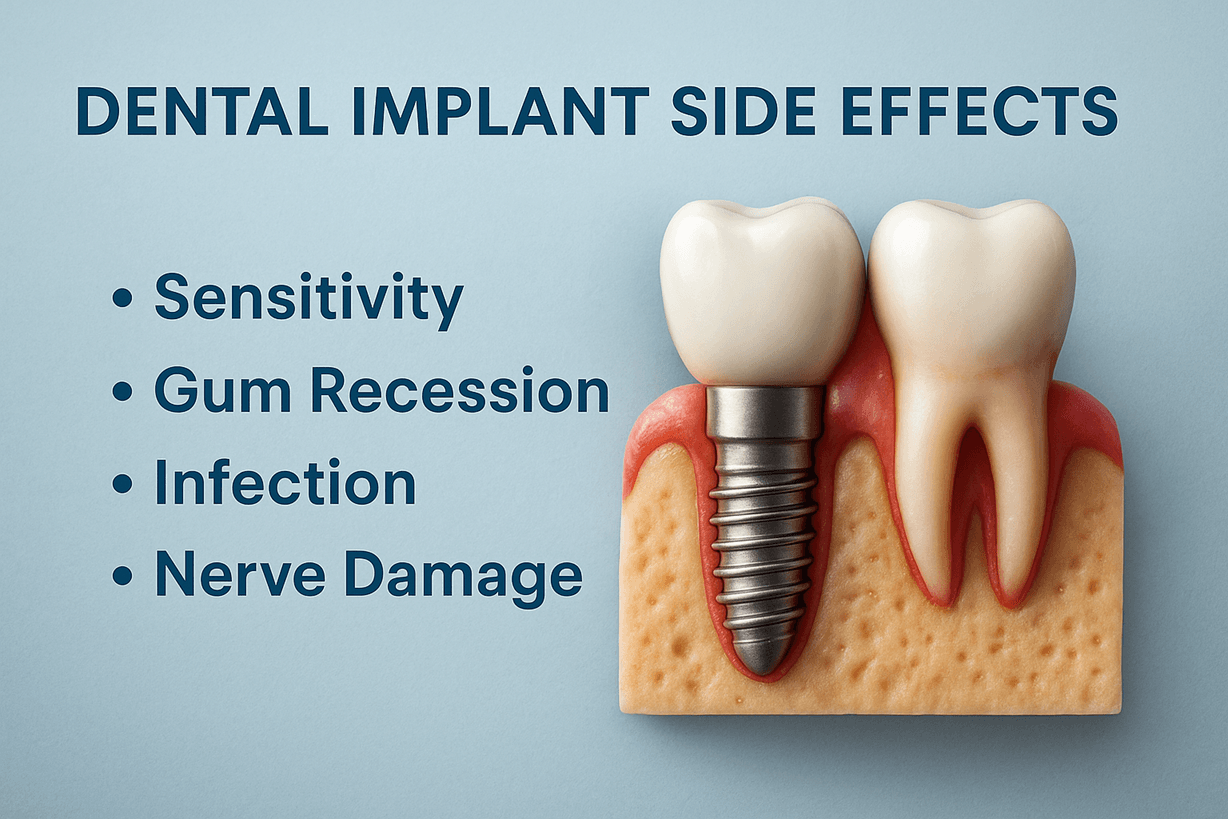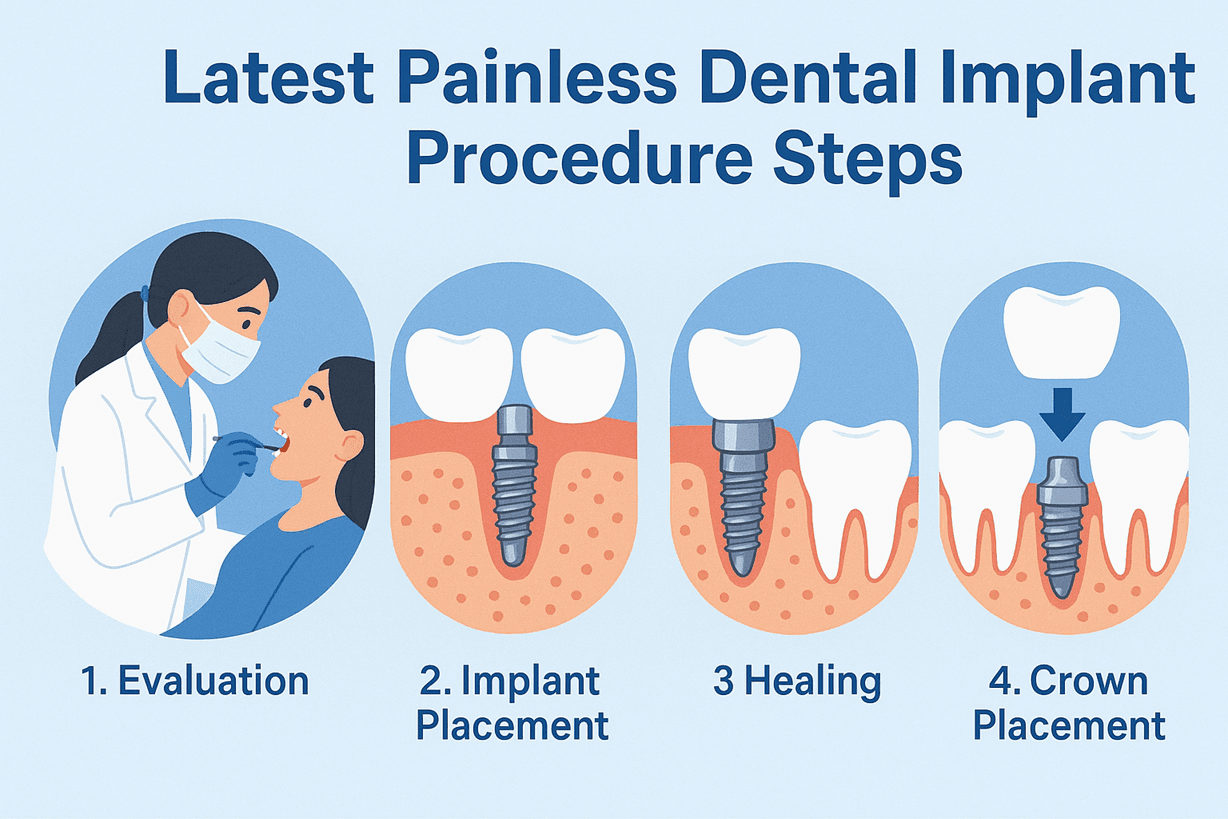Contents

Have you ever felt excruciating pain or anguish after eating a bite of ice cream or a spoonful of hot soup?
If you are facing this inconvenience, you are not alone. While pain from hot or cold foods may indicate a cavity, it is also typical in persons who have sensitive teeth.
Tooth sensitivity, also known as "dentin hypersensitivity," is the sensation of pain or discomfort in the teeth as a result of particular stimuli, such as hot or cold temperatures.
It can be a temporary or chronic disorder that affects one tooth, many teeth, or all of a person's teeth.
It can be caused by a variety of factors, but most cases of sensitive teeth are readily addressed with a modification in your oral hygiene.
Why Do My Teeth Hurt And Are Sensitive?
Here are the Common Causes of Tooth Sensitivity:
Aggressive Brushing:
Brushing too hard or using a side-to-side motion (known as "toothbrush abrasion") can wear down tooth enamel, especially near the gum line, exposing dentine and causing sensitivity.
Dental Erosion:
Enamel loss can also occur due to acids from acidic foods and drinks. This process, known as dental erosion, leaves the underlying dentine exposed and sensitive.
Receding Gums:
Gums may naturally recede with age or due to gum disease, exposing the tooth roots. Unlike the crown of the tooth, roots lack an enamel covering, making them more prone to sensitivity.
Gum Disease:
Plaque or tartar buildup can cause the gums to recede, exposing the dentine. If untreated, this can damage the bone structure supporting the teeth and create pockets around the teeth, making them harder to clean and increasing sensitivity.
Tooth Grinding (Bruxism):
Grinding or clenching your teeth, often during sleep, can wear away enamel and expose dentine, resulting in tooth sensitivity.
Cracked Tooth or Filling:
A cracked tooth or damaged filling can expose the dentine, leading to sharp pain and sensitivity.
Tooth Whitening Treatments:
Some people experience sensitivity during or after teeth whitening procedures. It’s important to consult a dentist before undergoing any whitening treatment.
When are Teeth More Prone to Sensitivity?
You are more likely to experience sensitivity while drinking or eating anything cold when cold air catches your teeth, and occasionally when drinking or eating something hot.
Some people are sensitive to sweet or acidic foods and drinks. The discomfort might come and go, with some days being more difficult than others.
What To Do For Sensitive Teeth Pain?
Hot, cold, sugary, or acidic liquids, as well as meals like ice cream, may cause sensitivity, therefore you should avoid them.
If brushing your teeth with cold water from the faucet causes sensitivity, try using warm water instead.
It is critical to continue brushing your teeth regularly; otherwise, the problem may worsen.
Visit the dentist:
If the sensitivity gets unbearable, it is important to schedule an appointment with your dentist.
Your dental care specialist will evaluate and examine your teeth to find the best technique for sensitive teeth therapy.
Maintain a healthy oral hygiene practice:
If you have sensitive teeth, you should not disregard your dental care routine. Brush your teeth twice a day using a soft-bristled toothbrush, such as those made by Oral-B, to avoid gum loss.
Floss your teeth thoroughly twice a day to prevent plaque buildup. One must avoid acidic meals and beverages because it only aggravates the sensitivity.
How to Stop Sensitive Teeth Pain?
When you experience sensitive teeth symptoms, the first thing that can help you is consultation, speak to your dentist inquire how to get rid of the tooth sensitivity and be alert of sensitive teeth causes for the future time.
Here are some measures and suggestions that may help you find relief from sensitive tooth pain.
Consult your doctor before using teeth sensitivity medications to relieve sensitive teeth pain.
Brush your teeth gently and always use a soft-bristled toothbrush.
Don't eat foods that are overly spicy or cold all the time.
You must see your dentist frequently for the best long-term solution to your extreme tooth sensitivity condition.
Replace your toothbrush and toothpaste as directed by your dentist.
If you are experiencing sharp pain rather than lesser pain, see your dentist instead of relying on home cures.
Take extra care of your teeth when getting teeth whitening or any other type of dental treatment because you will be using hard items that may damage your teeth.
While experiencing tooth pain and discomfort, rinse your mouth with salt water.
Avoid eating acidic foods for the rest of your life.
Make certain that you have thoroughly cleaned all of your teeth.
Are There Any Chances to Get Rid of Tooth Sensitivity?
Tooth sensitivity, however, does not go away on its own. Especially if your receding gum line is the root cause of your tooth discomfort.
Actually, having sensitive teeth is a symptom. It is an indication that something else is wrong with your dental health which needs to be checked as soon as possible.
If you ignore the pain in the hope that it will go away on its own, the underlying reason may worsen into a significant tooth disease.
For example, if your gums continue to recede, you may need surgery to graft your gums back over your teeth.
Final Outlook
Several home remedies can be used to alleviate mouth pain and tooth sensitivity.
However, expert treatment for dental pain is advised. Home cures can momentarily relieve pain, but they may not heal the underlying cause of your agony.
We've discussed it a few times before in this piece, but it's truly a simple concept to remember.
Brushing your teeth twice a day with an extra-soft toothbrush and fluoride toothpaste can help avoid dental hypersensitivity.


